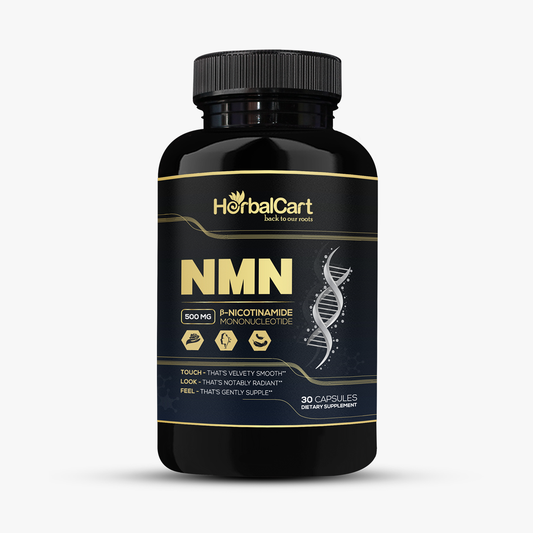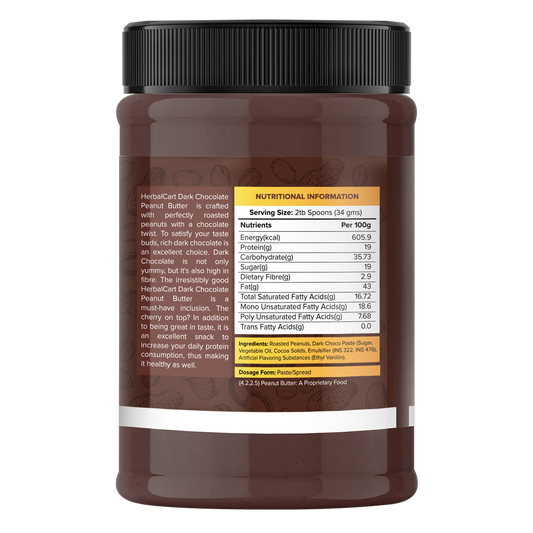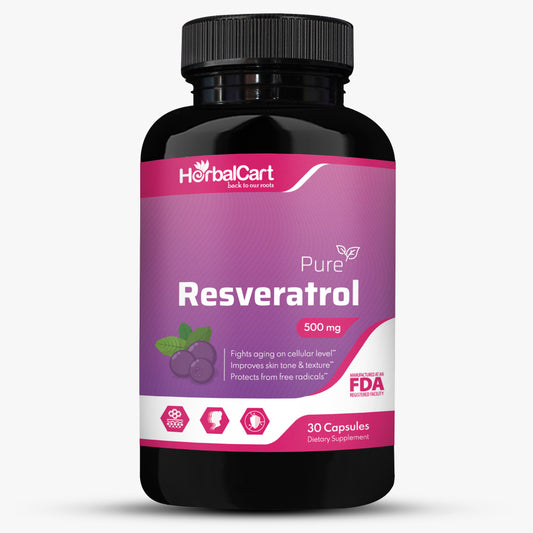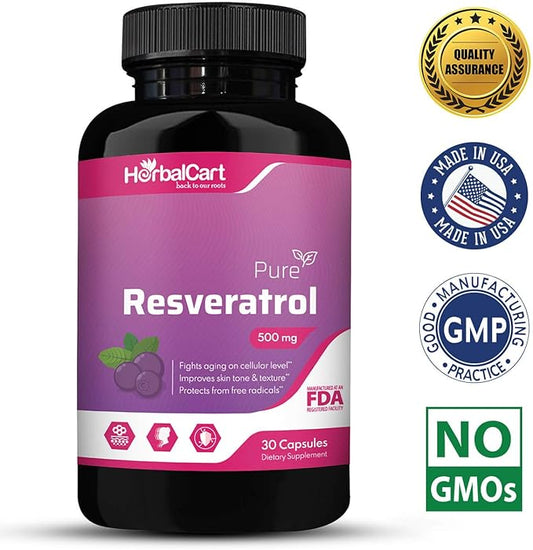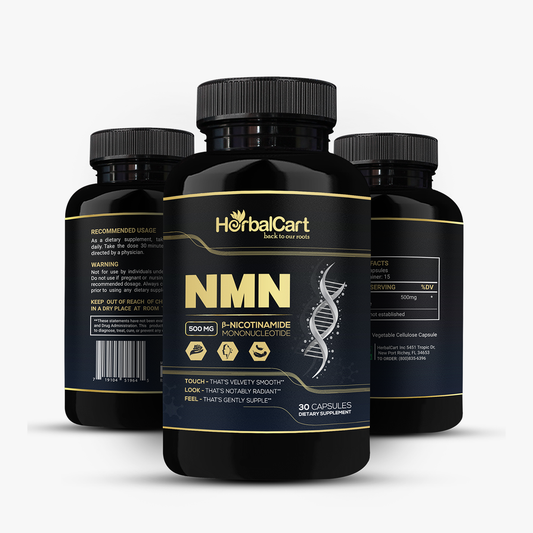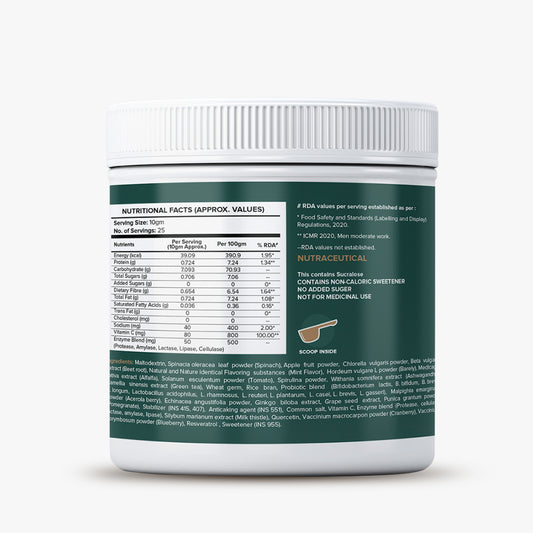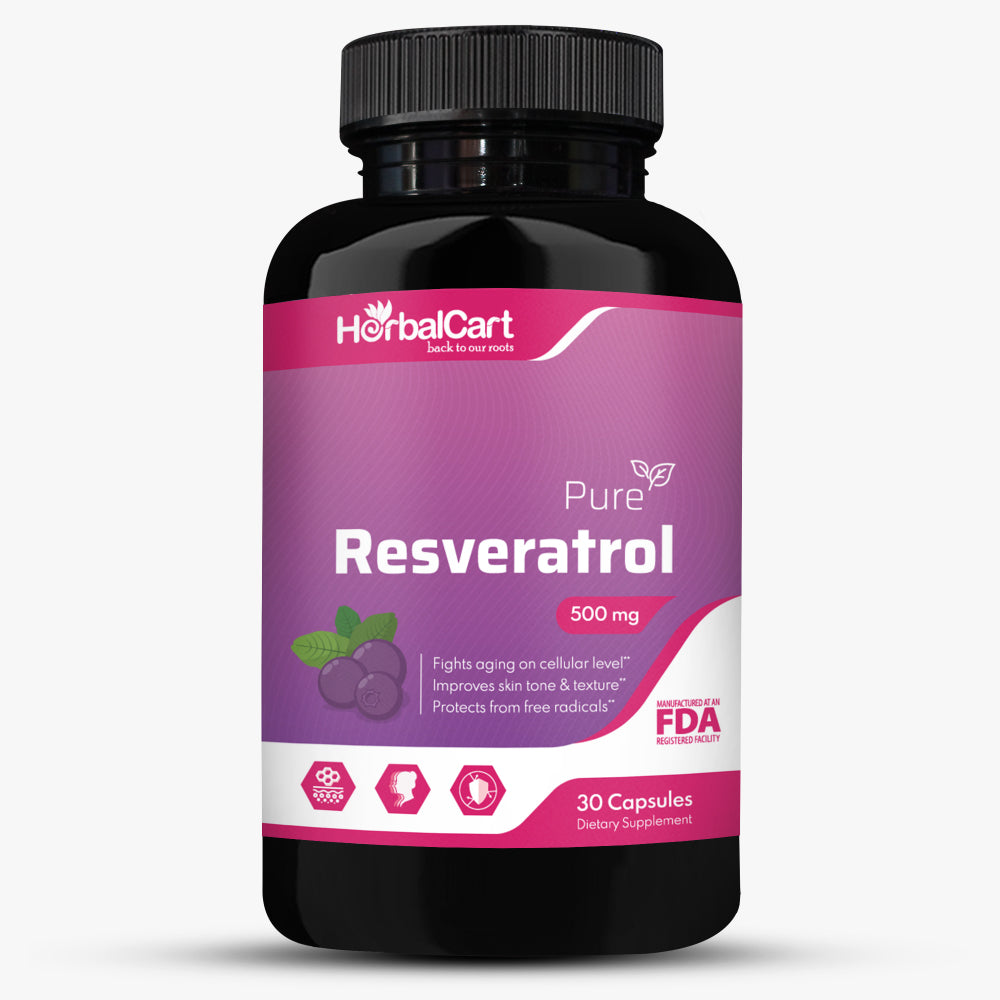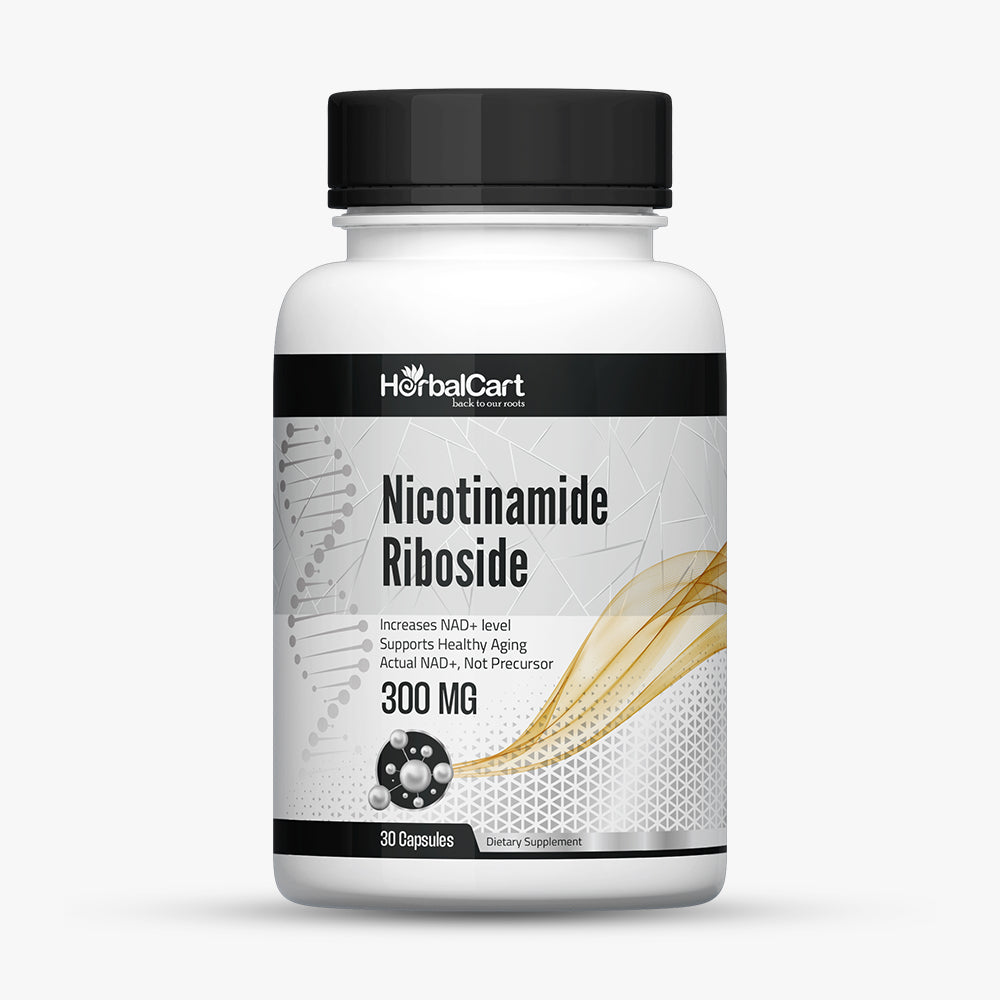Magnesium plays a crucial role in over 300 biochemical reactions in your body, yet studies suggest that approximately 50% of Americans don't get enough of this essential mineral. If you want to boost your magnesium intake, magnesium glycinate has become increasingly popular as one of the most bioavailable and gentle forms of magnesium supplementation available today.
Magnesium glycinate (also known as magnesium bisglycinate) is a compound that combines magnesium with glycine, an amino acid that your body uses to create proteins and transmit chemical signals in your brain. This specific formulation offers unique advantages over other magnesium supplements, particularly for those concerned about digestive comfort and optimal absorption.
This comprehensive guide will explore everything you need to know about magnesium glycinate, from its science-backed benefits and proper usage to potential side effects and how it compares to other magnesium forms.
What Is Magnesium Glycinate?
Magnesium glycinate is a chelated form of magnesium, meaning the magnesium is bound to glycine molecules. This chemical structure gives it several advantages:
The glycine component helps your body absorb magnesium more effectively through the intestinal wall than non-chelated forms. This improved bioavailability means more magnesium makes it into your bloodstream, where it can benefit your cells and tissues.
Unlike other magnesium supplements that can cause digestive distress, magnesium glycinate is generally well-tolerated even at higher doses. This gentler effect on the digestive system occurs because less unabsorbed magnesium remains in the intestines to draw in water and stimulate bowel movements.
Glycine itself brings additional benefits beyond improving magnesium absorption. As an inhibitory neurotransmitter, glycine can have calming effects on the nervous system, potentially enhancing the relaxation benefits associated with magnesium.
When shopping for magnesium glycinate supplements, you might see them labeled as "magnesium bis-glycinate," "magnesium glycinate," or "magnesium glycinate chelate." These all refer to the same compound with minor variations in how the molecules are arranged.
Benefits of Magnesium Glycinate
Magnesium glycinate is one of the most bioavailable and well-tolerated forms of magnesium. It's made by combining magnesium with the amino acid glycine, which improves absorption and offers a calming effect on the body. This form is often recommended for people who need long-term magnesium support without digestive side effects, especially those dealing with stress, poor sleep, or muscle tension.
Supports Mental Health and Brain Function
Magnesium glycinate has gained particular attention for its potential mental health benefits. The magnesium component helps regulate neurotransmitters that send messages throughout your brain and nervous system, while glycine is an inhibitory neurotransmitter with calming properties.
Research suggests that magnesium supplementation may help reduce symptoms of mild to moderate anxiety and depression in some individuals. A systematic review published in the journal Nutrients found that magnesium supplementation appeared to improve measures of subjective anxiety in susceptible individuals.
Many users report that magnesium glycinate helps with stress management and promotes a sense of calm. This effect may be particularly beneficial before bedtime, as the combination of magnesium and glycine can support relaxation without causing daytime drowsiness.
Some preliminary research also suggests that maintaining optimal magnesium levels might help protect cognitive function as we age. However, more studies are needed to confirm these effects specifically for magnesium glycinate.
Improves Sleep Quality
One of the most popular uses for magnesium glycinate is as a natural sleep aid. Both the magnesium and glycine components may contribute to improved sleep quality through different mechanisms:
Magnesium helps regulate melatonin production and transport, the hormone responsible for your sleep-wake cycle. It also binds to GABA receptors in the brain, promoting relaxation and potentially making it easier to fall asleep.
Glycine may help lower core body temperature, which is associated with better sleep quality. Studies have shown that glycine supplementation before bedtime can improve subjective sleep quality and reduce the time it takes to fall asleep.
Unlike many prescription sleep medications, magnesium glycinate doesn't typically cause morning grogginess or dependency issues, making it suitable for long-term use for those with chronic sleep concerns.
A clinical trial published in the Journal of Research in Medical Sciences found that elderly participants who took magnesium supplements significantly improved sleep efficiency, sleep time, and early morning awakening.
Alleviates Muscle Tension and Pain
Magnesium plays a crucial role in muscle function and relaxation. It regulates calcium uptake and helps muscles release tension after contraction. When magnesium levels are insufficient, muscles may remain partially contracted, leading to cramps, stress, and discomfort.
Magnesium glycinate supplementation may help:
-
Reduce the frequency and intensity of muscle cramps.
-
Alleviate tension headaches and migraines.
-
Support recovery after intense exercise.
-
Decrease pain associated with fibromyalgia and chronic fatigue syndrome.
Athletes and highly active individuals often use magnesium glycinate to support muscle recovery and prevent nighttime leg cramps. The improved absorption of magnesium glycinate means more magnesium is available to support proper muscle function.
Supports Heart Health
Magnesium is essential for maintaining normal heart rhythm and function. It works alongside other electrolytes like potassium and calcium to regulate electrical impulses in the heart.
Research suggests that adequate magnesium intake is associated with:
-
Lower blood pressure levels.
-
Reduced risk of arrhythmias.
-
Improved endothelial function (the health of blood vessel linings).
-
Better overall cardiovascular health.
A meta-analysis published in the American Journal of Clinical Nutrition found that magnesium supplementation produced modest but significant reductions in systolic and diastolic blood pressure. While not specific to magnesium glycinate, the improved absorption of this form may enhance these cardiovascular benefits.
Helps Regulate Blood Sugar
Magnesium plays a key role in glucose metabolism and insulin sensitivity. It facilitates glucose transport across cell membranes and helps regulate insulin signaling pathways.
Studies have shown that magnesium supplementation may:
-
Improve insulin sensitivity.
-
Help lower fasting blood glucose levels.
-
Potentially reduce the risk of type 2 diabetes in magnesium-deficient individuals.
Maintaining adequate magnesium levels may help with blood sugar management for those already diagnosed with type 2 diabetes as part of a comprehensive treatment plan. Magnesium glycinate's gentler digestive profile makes it suitable for long-term use in supporting metabolic health.
Supports Bone Health
While calcium typically gets the spotlight for bone health, magnesium is equally important. About 60% of the body's magnesium is stored in the bones, contributing to bone formation and strength.
Magnesium helps:
-
Activate vitamin D, which improves calcium absorption.
-
Regulate calcium transport between bones and soft tissues.
-
Support proper bone crystal formation.
Research suggests that higher magnesium intake is associated with increased bone mineral density, which is particularly important for preventing osteoporosis as we age. Magnesium glycinate's excellent bioavailability makes it a good choice for supporting long-term bone health.
Who Might Benefit from Magnesium Glycinate?
Magnesium glycinate may be particularly beneficial for:
People with digestive sensitivities: Unlike magnesium oxide or citrate, magnesium glycinate typically doesn't cause loose stools or digestive discomfort, making it suitable for those with sensitive digestive systems or irritable bowel syndrome.
Individuals with sleep difficulties: The combined relaxing effects of magnesium and glycine make this form ideal for those struggling with insomnia or poor sleep quality.
Those with anxiety or chronic stress: The calming neurological effects of both compounds may help manage symptoms of anxiety and stress.
People with muscle pain or fibromyalgia: The muscle-relaxing properties can help address chronic muscle tension and discomfort.
Migraine sufferers: Some research suggests magnesium supplementation may help reduce migraine frequency and intensity.
Those at risk for magnesium deficiency include:
-
Older adults (absorption decreases with age).
-
People with type 2 diabetes.
-
Those with gastrointestinal disorders that affect nutrient absorption.
-
Individuals taking certain medications (proton pump inhibitors, diuretics, etc.).
-
People who consume alcohol regularly.
-
Athletes with high sweat losses.
How to Use Magnesium Glycinate Effectively
Recommended Dosage
The optimal dosage of magnesium glycinate depends on several factors, including age, sex, health status, and specific health goals. General recommendations include:
-
For general health maintenance: 200-400 mg of elemental magnesium daily (note that this refers to the actual magnesium content, not the total weight of the compound).
-
For specific health concerns: 400-600 mg daily, divided into 2-3 doses.
-
For sleep support: 200-400 mg taken 1-2 hours before bedtime.
When reading supplement labels, pay close attention to the amount of elemental magnesium per serving, not just the total weight of magnesium glycinate compound. For reference, the Recommended Dietary Allowance (RDA) for magnesium is:
-
Adult men: 400-420 mg daily.
-
Adult women: 310-320 mg daily (350-360 mg during pregnancy).
Timing and Administration
For optimal absorption and benefits:
-
Split larger doses throughout the day rather than taking all at once
-
Take with food to further enhance absorption and minimize any potential digestive discomfort
-
For sleep benefits, take the last dose about 1-2 hours before bedtime
-
Consider taking vitamin D and vitamin K2, which work synergistically with magnesium
Most magnesium glycinate supplements come in tablet, capsule, or powder form. The powder can be mixed with water or other beverages and may be preferable for those who have difficulty swallowing pills or want more flexibility with dosing.
Potential Drug Interactions
Magnesium supplements may interact with certain medications:
-
Antibiotics (particularly tetracyclines and fluoroquinolones): Take magnesium at least 2 hours apart from these medications.
-
Bisphosphonates (for osteoporosis): Separate dosing by at least 2 hours.
-
Diuretics: Some increase magnesium excretion while others reduce it.
-
Proton pump inhibitors: May affect magnesium absorption with long-term use.
-
Blood pressure medications: May enhance blood pressure-lowering effects.
Always consult a healthcare provider before starting magnesium supplementation if you take any prescription medications.
Potential Side Effects and Considerations
While magnesium glycinate is generally well-tolerated even at higher doses, some potential side effects may occur:
Common Mild Side Effects
-
Mild digestive discomfort (much less common than with other forms of magnesium).
-
Drowsiness, particularly when taken in larger doses.
-
Headache (usually temporary during initial use).
-
Dry mouth.
These side effects are typically mild and often resolve as your body adjusts to supplementation.
Less Common but More Serious Side Effects
In rare cases, particularly with excessive doses, more serious side effects may occur:
-
Irregular heartbeat
-
Significant drops in blood pressure
-
Respiratory difficulties
-
Confusion or changes in mental status
These more serious side effects typically only occur with very high doses well beyond recommended amounts or in individuals with impaired kidney function who cannot properly excrete excess magnesium.
Special Precautions
Kidney impairment: People with kidney disease or severe renal insufficiency should avoid magnesium supplements unless specifically prescribed by their doctor, as the kidneys regulate magnesium levels in the body.
Low blood pressure: Those with already low blood pressure should monitor their response carefully, as magnesium can further lower blood pressure.
Myasthenia gravis: Magnesium may worsen muscle weakness in this condition.
Pregnancy and breastfeeding: While magnesium is essential during pregnancy, always consult a healthcare provider regarding appropriate dosing.
Comparing Magnesium Glycinate to Other Forms
There are many different magnesium supplements available, each with distinct properties:
Magnesium glycinate: High bioavailability, gentle on the digestive system, suitable for sleep and anxiety support.
Magnesium citrate: Moderately good absorption, commonly used for constipation due to its laxative effect.
Magnesium oxide: Lower bioavailability (about 4-5%), primarily used for short-term relief of heartburn and constipation.
Magnesium L-threonate: Can cross the blood-brain barrier more effectively, offering enhanced cognitive benefits.
Magnesium malate: Well-absorbed and may help with fatigue and muscle pain.
Magnesium taurate: May offer additional heart health benefits.
Magnesium chloride: Good absorption, often used in topical applications for muscle pain.
Magnesium glycinate is one of the best options if you're primarily concerned with raising your overall magnesium levels without digestive side effects. However, another form might be more appropriate if you have specific health concerns.
Food Sources of Magnesium
While supplements can be helpful, obtaining magnesium from food sources is always beneficial. Foods rich in magnesium include:
-
Dark leafy greens (spinach, kale, collard greens)
-
Nuts and seeds (pumpkin seeds, almonds, cashews)
-
Legumes (black beans, chickpeas, edamame)
-
Whole grains (brown rice, quinoa, whole wheat)
-
Dark chocolate (70% cocoa or higher)
-
Avocados
-
Fatty fish (salmon, mackerel)
A diet rich in these whole foods will provide both magnesium and the cofactors needed for optimal absorption and utilization.
When to Consult a Healthcare Provider
It's advisable to speak with a healthcare provider before starting magnesium supplementation if you:
-
Have kidney disease or impaired kidney function.
-
Take prescription medications.
-
Have heart rhythm abnormalities.
-
Are pregnant or breastfeeding.
-
Have severe digestive disorders.
-
Experience unusual symptoms after taking magnesium.
A healthcare provider can help determine if magnesium supplementation is appropriate for you, recommend the optimal dosage, and monitor for potential complications.
Conclusion: Is Magnesium Glycinate Right for You?
Magnesium glycinate offers a highly bioavailable form of this essential mineral with the added benefits of being gentle on the digestive system and potentially enhancing sleep and relaxation due to its glycine component. Its well-established safety profile and multiple health benefits make it a popular choice for addressing magnesium deficiency and supporting overall wellness.
While no supplement is a magic bullet, maintaining optimal magnesium levels is crucial for numerous bodily functions. Suppose you're experiencing symptoms that might be related to suboptimal magnesium status, such as muscle cramps, poor sleep, anxiety, or headaches. Magnesium glycinate may be worth considering as part of your health regimen.
Remember that supplements should complement, not replace, a nutrient-rich diet and healthy lifestyle. By combining appropriate supplementation with magnesium-rich foods and regular physical activity, you can maximize the benefits of this essential mineral for your long-term health and well-being.





